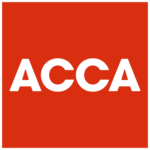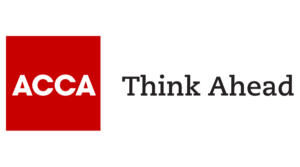ACCA TRAINING OMAN
ACCA Course in Oman – Take the Next Step in Your Finance Career with Oman’s Leading Online ACCA Training
By the end of the training you will,
- Prepare and analyze financial statements
- Use accounting information for decision-making
- Knowledge of auditing principles and techniques
- Understanding of tax laws and regulations
- Skills in managing financial resources
- Familiarity with legal aspects related to business operations and many more

ACCA Training in Oman
What is ACCA?
The ACCA course in Oman is your gateway to a rewarding career in accounting, auditing, financial analysis, and tax consultancy. Designed to align with international education standards, Infinity’s ACCA course in Oman is delivered entirely online — making it perfect for students and professionals looking to qualify without disrupting their daily routine. Our expert-led virtual sessions cover all 13 ACCA exams and include full training for the Ethics and Professional Skills module, ensuring you build both competence and confidence.
Recognized by thousands of employers and institutions worldwide, the ACCA qualification unlocks global career opportunities in finance leadership, fund management, internal audit, and corporate tax planning. Many who complete the ACCA course in Oman have gone on to launch successful independent firms, with experienced ACCA professionals earning up to $176,000 per year in top financial roles.
What makes Infinity’s ACCA course in Oman truly stand out is its strong emphasis on real-world learning. Our online sessions combine technical theory with case-based problem-solving, helping you apply concepts to real finance challenges. Whether you’re balancing full-time work or other academic commitments, Infinity’s flexible online ACCA course in Oman gives you the freedom to learn on your schedule. With years of success and hundreds of students achieving their goals, Infinity is your trusted partner for online ACCA training in Oman.
Unlock Global Career Opportunities with Our ACCA Course in Oman
The ACCA course in Oman by Infinity offers a direct path to international success in the fields of finance and accounting. Designed for ultimate convenience, this fully online program caters to both students and working professionals across Oman. Whether your goal is to work in auditing, taxation, financial reporting, or corporate accounting, the ACCA course in Oman delivers globally respected qualifications recognized by over 7,400 employers. Through our advanced virtual learning platform, you’ll gain access to expert-led instruction, interactive study tools, and one-on-one mentorship — all without ever needing to attend in person. With the freedom to study from anywhere in Oman and the confidence of earning a globally recognized certification, Infinity’s ACCA course in Oman sets you on the right track for lasting career growth in the financial world.
Why Choose to join our ACCA training?
Enrolling in Infinity’s ACCA course in Oman means choosing a provider that combines quality, convenience, and proven results. Our 100% online format is tailored for students and professionals across Oman who want the flexibility to study at their own pace — from home, work, or while balancing other commitments. With close to a decade of experience, Infinity has guided hundreds of ACCA aspirants to exam success. Our instructors, all seasoned finance professionals, deliver clear, practical lessons that simplify complex concepts and keep you focused and exam-ready. Whether you’re entering the accounting field or advancing your current career, Infinity’s structured and student-centered approach ensures that your goals stay within reach.
Infinity’s ACCA course in Oman offers more than just academic preparation — it provides real-world readiness. Unlike many generic online programs, our classes integrate current industry knowledge, real case studies, and practical exam strategies to give you a well-rounded learning experience. Each session is designed to prepare you not only for the ACCA exams but also for the dynamic global finance landscape. Our commitment to personalized mentorship, career coaching, and flexible study options means that every learner in Oman can access the tools needed for success. With Infinity, you’re not just preparing for an exam — you’re building a globally respected career through the best ACCA course in Oman.

Get a flying start to your business career with ACCA
They earn global renown for their excellence, and their demanding qualifications receive worldwide acknowledgment and respect. They have collaborated with over 7,400 Approved Employers and 80 accountancy firms globally, and link their members to thousands of job opportunities through the ACCA Careers Job Board..
Get a flying start to your business career with ACCA training in Sharjah and Dubai
ACCA Training in Oman- Papers List
The prestigious ACCA Chartered Accountancy Qualification is challenging to obtain. To become a fully qualified ACCA member, students must complete three key components: the ACCA Coursework Exams (13 papers), the Ethics and Professional Skills Module, and the Practical Experience Requirements (PER).
The ACCA coursework syllabus includes fourteen modules, encompassing ethics and professional skills. The thirteen coursework modules fall into two categories: the Fundamental level, which includes 9 modules or papers, and the Professional level, which includes 4 modules or papers. There are four exam sessions annually, and a student can take up to 8 different papers per year.
Fundamental Level Courses :
The fundamental level of the ACCA qualification includes a total of nine courses. If students do not possess a relevant undergraduate degree or a professional qualification (such as CA), they must complete all nine of these courses to be eligible for the ACCA certification. This level is further divided into two distinct sections: the Knowledge Level and the Skills Level. The Knowledge Level consists of three papers, which provide a foundational understanding of key concepts, while the Skills Level includes six papers that delve deeper into more advanced topics and practical applications. The fundamental level courses are labelled F1 to F9, each covering various aspects of finance and accounting to provide a thorough educational experience.
Knowledge Level or Applied Knowledge Papers :
The Knowledge exams provide students with a thorough introduction to finance and accounting, enabling them to grasp essential accounting practices and techniques.
The three exams in this level are:
F1 : Business and Technology (BT):
The organization’s structure, governance, and management; the influence and constraints of key environmental factors on business and accounting; the role of accountants in a business; specific aspects of internal financial control and accounting; and the management of individuals and teams.
F2 : Management Accounting (MA):
The nature and objectives of management and cost accounting, the categorization of costs and examination of their behavior and purpose, the application of computer spreadsheets and business mathematics, standard costing and budgeting, cost accounting methods, and different decision-making techniques.
F3 : Financial Accounting (FA):
The essence and objectives of management and cost accounting, the categorization and analysis of costs, the application of computer spreadsheets and business mathematics, standard costing and budgeting, cost accounting methods, and diverse decision-making approaches.
Skills Level or Applied Skills Papers :
The Applied Skills modules expand on the knowledge acquired at the Knowledge level, deepening understanding and cultivating strong, broad, and practical finance skills essential for working as a professional accountant in any field or industry.
The six Applied Skills papers are:
F4 : Corporate and Business Law (LW):
The principles and objectives of management and cost accounting, the categorization of costs and their behavioral analysis, the use of computer spreadsheets and business mathematics, standard costing and budgeting practices, cost accounting methods, and a range of decision-making techniques.
F5 : Performance Management (PM):
Cost accounting techniques, budgeting and forecasting, methods for measuring performance, standard costing, and variance analysis.
F6 : Taxation (TX):
Cost accounting methods, budgeting and forecasting, techniques for performance measurement, standard costing, and analysis of variances.
F7 : Financial Reporting (FR):
Cost accounting techniques, budgeting and forecasting, methods for evaluating performance, standard costing, and variance analysis.
F8 : Audit and Assurance (AA):
Cost accounting strategies, budgeting and forecasting, techniques for measuring performance, standard costing, and variance analysis.
F9 : Financial Management (FM):
The duties of a financial manager, the financial management landscape, investment assessment and business valuation, management of capital expenditures and business financing, working capital oversight, and evaluation of business risks.
Strategic Professional Level
The Strategic Professional exams, or Professional Level, prepare students for leadership positions. This level helps students enhance their technical, ethical, and professional skills, teaching them to approach problems from multiple perspectives. The Strategic Professional Level consists of six papers, with two being compulsory. Students must select two specializations from the four optional courses, allowing them to focus on areas that align with their career goals.
Compulsory Courses
P1 : Strategic Business Leader (SBL):
The function and importance of governance in managing an organization, the accountant's role in assessing risks, and the ethical framework that directs professional values and decision-making.
P2 : Strategic Business Reporting (SBR):
The professional and ethical duties of an accountant, the structure for financial reporting, the preparation of financial statements for group entities, examination of potential financial reporting challenges, the impact of changes in accounting regulations, and evaluation of recent developments.
Electives or Optional Courses
(Students must choose two of the four courses).
P3 : Advanced Financial Management (AFM):
Managing stakeholders, sophisticated investment appraisal, corporate restructuring, mergers and acquisitions, advanced risk management techniques, and new developments in finance.
P4 : Advanced Performance Management (APM):
Evaluation of an organization's strategic growth and performance, analysis of external factors, design and assessment of performance systems, and recent global trends.
P5 : Advanced Taxation (ATX):
Tax system, tax planning strategies, and communication.
P6 : Advanced Audit and Assurance (AAA):
The conceptual and regulatory framework for auditing, the preparation of financial statements, and methods for analysis and interpretation.
Ethics and Professional Skills Module :
The Ethics and Professional Skills module, which all ACCA students must complete, is specifically designed to develop a wide range of skills that significantly boost graduates’ employability. This module focuses on building competencies through various case studies and practical exposure to real-world business scenarios, thereby aiming to increase the credibility and professional standing of ACCA graduates in Dubai in the global job market.
You must complete the 13 papers of the ACCA qualification and the Ethics and Professional Skills module in a specific sequence. Initially, students are expected to attempt and pass the Applied Knowledge exams. Following this, they should proceed to the Applied Skills exams, which build on the foundational knowledge acquired earlier. Finally, students should undertake the Strategic Professional exams, which prepare them for advanced roles in the accounting profession.
You can pursue the Ethics and Professional Skills module at any time after completing the Applied Knowledge exams, even though it is a critical part of the qualification. This flexibility allows students to integrate ethical and professional skills training into their learning journey at a strategic point that complements their overall educational progress.
About Exemptions
Based on your existing qualifications, ACCA may grant exemptions in the following areas:
- The Foundation level qualifications
- the nine Applied Knowledge and Applied Skills exams of the ACCA Qualification
Exemptions are not granted for the Strategic Professional exams of the ACCA Qualification, nor can they be earned through work experience. However, if you have acquired additional qualifications after registering as a student, you may be eligible for additional exemptions. You can apply for these exemptions at any time. Use the ACCA exemptions calculator to find out which exemptions you are eligible for.
